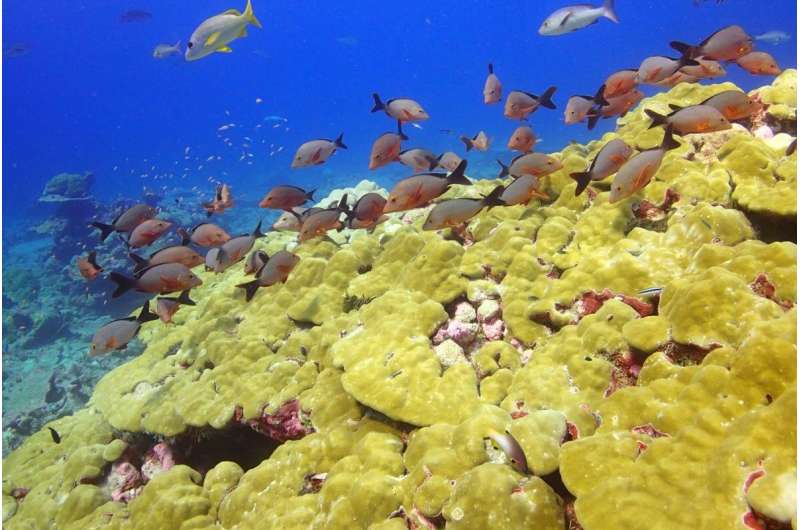First comprehensive assessment of climate change impacts on coasts and seas across the UK Overseas Territories

Professor John Turner and Dr. Gareth Williams of the School of Ocean Sciences were co-authors of the Indian Ocean Region Assessment which highlighted four priorities, which are the changes in coral species; changes to coral reef habitats; changes to reef islands and sandy beaches and the impacts on the provision of natural coastal protection and island resilience to sea-level rise.
Over 60 scientists and managers working with all 14 UK Overseas Territories undertook similar regional reviews, which include the Polar Territories (South Georgia and the South Sandwich Islands (and the British Antarctic Territory); Territories in the South Atlantic (Ascension Island, Falkland Islands, Tristan da Cunha and St Helena Island); Caribbean & Mid Atlantic (Anguilla, Bermuda, the British Virgin Islands, the Cayman Islands, Montserrat, and the Turks and Caicos); Mediterranean (Gibraltar and Akrotiri and Dhekelia in Cyprus) and the Pitcairn Islands in the Pacific.
Although most territory islands are small, the UK has the fifth largest total area of ocean, and the territories contain 94% of the UK's biodiversity. The UK Government has committed to establishing a "Blue Belt' of over 4 million square kilometers of marine protected areas.
Speaking at the launch event, Lord Goldsmith, Minister for the International Environment and Climate, said: "The impacts of climate change pose a serious threat to the vital marine ecosystems of the UK Overseas Territories and the coastal communities that depend directly on them. By undertaking research, such as the reports published today, we can close gaps in our understanding and gain valuable insights that will help us to meet the global challenge of protecting and restoring the health of our ocean."
Professor John Turner stated: '"As a fully protected Marine Protected Area in a remote location, the Chagos Archipelago in the Indian Ocean provides a globally important reference site for climate change impacts that can give insights into vulnerability and resilience in the absence of other anthropogenic stressors."
Internationally collaborative research funded by the Bertarelli Foundation has shown that corals are being affected by climate change, with an increase in bleaching, caused by heat stress, as well as physical damage from storms. Several coral species are already becoming rare or significantly reduced in abundance. A reduction in reef habitat quality and structural complexity because of rising temperature, physical damage and ocean acidification, all cause impacts on other organisms, such as fish. Changes in sea level, storms and waves and large-scale ocean processes could affect reef islands and beaches, especially on eroding coasts exposed to the prevailing winds. These changes may affect the provision of critical terrestrial habitat, natural coastal protection, and island maintenance.
In this crucial year of global climate action, which includes the UN Climate Change conference COP26 in November, these assessments highlight climate challenges in the UK Overseas Territories and showcase working with nature to build resilience to climate change.
Provided by Bangor University



















